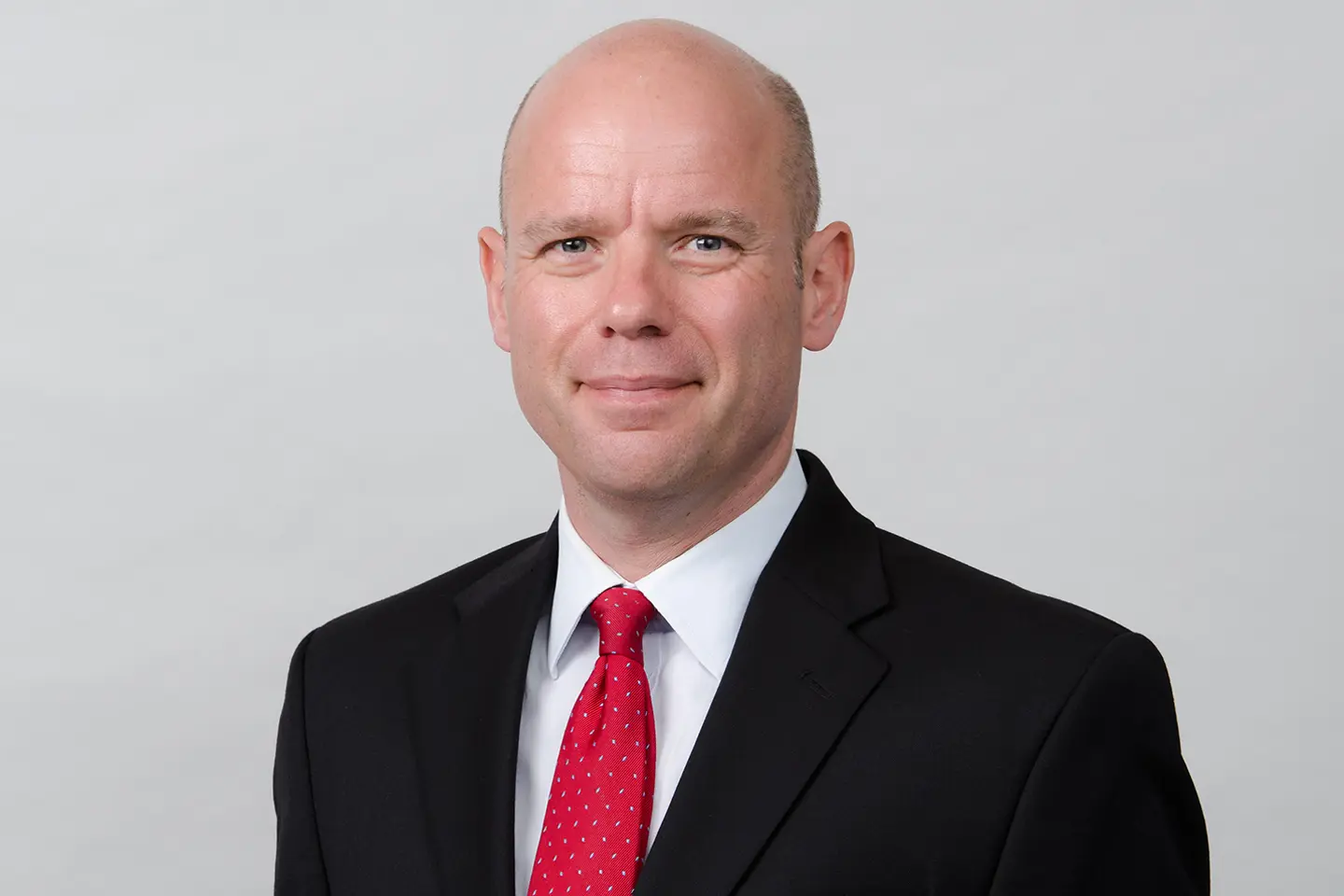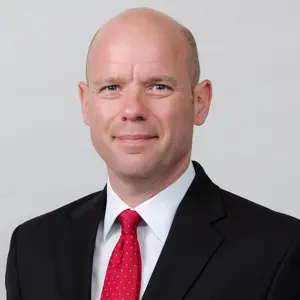
Michael Killourhy
Partner | Legal
British Virgin Islands

Michael Killourhy
Partner
British Virgin Islands
Corporate experts Michael Killourhy and Laura O'Byrne explain the current wave of SPAC activity in the US, why international finance centres like Cayman and the BVI are at the forefront of dealmaking and how the SPAC market has evolved from mania to maturity.
The special purpose acquisition company (SPAC) boom is long over but the market for SPACs hasn’t vanished - it’s just matured.
As the dust settles, SPACs appear to be enjoying something of a “soft landing” in international finance centres like the British Virgin Islands (BVI) and the Cayman Islands, buoyed by a broader shift toward internationalisation and selectivity in dealmaking.
Despite tightened regulations and waning hype, SPACs and de-SPACs still made up more than 50% of US public market entries in 2023. Following a notable uptick in SPAC activity in the latter half of 2024, 56 SPACs have been recorded in the United States in 2025, raising around US$14 billion so far, supplementing the US$7.1 billion amassed in the final six months of 2024, according to SPAC Research data.
Market participants remain cautiously optimistic: the model may be leaner, but its core appeal - speed, efficiency, and price certainty - remains intact, promising further growth in SPAC initial public offerings (IPOs) and potential increases in SPAC M&A activity throughout 2025.
A SPAC, often referred to as a "blank check company", is essentially a publicly listed cash shell, formed with the express purpose of acquiring or merging with an existing private business. Once funded via IPO, it typically has 18 to 24 months to execute a qualifying acquisition or else liquidate.
For private companies, being acquired by a SPAC (“de-SPACing”) can be a faster, more flexible alternative to the traditional IPO route, especially in volatile or opaque markets.
In addition to price certainty and a quicker timetable (often just four to six months from letter of intent to close), de-SPACs can benefit from more flexible disclosure requirements compared to standard IPOs. This remains especially attractive in sectors like clean energy, biotech and AI, where future-facing projections are difficult to frame within rigid IPO disclosure frameworks.
SPACs exploded during 2020 – 2021, driven by pandemic-fuelled market instability and unprecedented investor appetite. Celebrity endorsements and record-breaking capital raises made headlines but the party ended swiftly by late 2022. More than 600 SPACs were raised in 2021, yet many failed to find targets or closed poorly performing deals.
Key reasons for the bust included:
oversupply of SPACs relative to quality targets
heightened US Securities and Exchange Commission (SEC) scrutiny and proposed rules in 2022
new federal excise tax under the Inflation Reduction Act
broader macroeconomic pressures including rising interest rates
By 2023, the market entered a “post-mania” phase - quieter, leaner, and more institutional. The majority of liquidations have cleared, and sponsors today are increasingly focused on value creation and target diligence over sheer deal volume.
While far from the 2021 peak, SPACs have remained a notable fixture in public market entries through 2024 and the first half of 2025. Institutional sponsors with credible track records are still raising SPACs, albeit fewer, smaller and with tighter terms. Deal sizes are smaller, timelines more flexible and back-end structures are increasingly aligned with long-term value creation.
This represents a reversion to the “mean” - a return to the slower but steadier growth model seen prior to 2020. Encouragingly, the sector is seeing increased cross-border interest and better alignment between sponsor and shareholder interests, especially where regulatory clarity is strongest.
Offshore incorporation, particularly in the BVI and Cayman, continues to provide meaningful advantages in the current SPAC climate. More than 95.3% of all SPACs listed so far in 2025 on Nasdaq and NYSE are incorporated in either BVI or the Cayman Islands. Of the SPACs priced in 2024, 98% chose BVI or the Cayman Islands for incorporation.
BVI or Cayman incorporated SPACs are especially appealing to:
non-US sponsors seeking non-US targets
US-listed SPACs qualifying as Foreign Private Issuers (FPIs), benefiting from lighter compliance obligations
sponsors seeking to avoid certain US-specific tax and governance burdens
Two key US legal and tax developments have driven renewed interest in offshore SPACs:
Landmark rulings in MultiPlan and Gigacquisitions3 imposed a higher fiduciary standard on SPAC boards, especially where conflicts of interest may exist between insiders and public shareholders. This has eroded sponsor confidence and increased insurance premiums. In contrast, jurisdictions like the BVI and Cayman continue to apply the more flexible “business judgment rule.”
The Inflation Reduction Act introduced a 1% federal excise tax on stock repurchases by US-listed companies. While its application to SPAC redemptions remains debated, it has undeniably cooled the market for US-domiciled SPACs. Offshore structures, like those in the BVI or Cayman, are generally not subject to this tax.
SPAC activity outside the US continues to gain momentum. Sponsors in Asia - particularly from India, the Philippines and Southeast Asia - remain keen to pursue US listings via SPACs, often using BVI and Cayman vehicles. The same is true in parts of Latin America, where SPACs offer a valuable conduit for accessing US capital markets without navigating domestic IPO challenges.
As the SPAC model globalises, jurisdictions with responsive regulatory frameworks, strong legal reputations, and tax efficiency - like the BVI and Cayman Islands - stand to benefit.
Experienced SPAC sponsors recognise jurisdictions such as the BVI and the Cayman Islands for their supportive legal and regulatory environments in structuring business combination transactions.
The statutory merger provisions in the BVI Business Companies Act and in the Cayman Islands Companies Act (Revised), offer an efficient and cost-effective method for merging or consolidating companies. Additionally, the BVI and the Cayman Islands provide a more streamlined post-acquisition structure, eliminating additional US tax, legal or regulatory implications that can arise from using a US vehicle.
The SEC and Nasdaq offer rule concessions for non-US issuers classified as “Foreign Private Issuers” and allow foreign entities to adhere to more flexible "home country rules."
The SPAC is no longer the investment fad of 2021 - and that’s a good thing. In a less speculative, more disciplined market, the SPAC may yet prove to be a lasting fixture in the capital markets toolkit, especially for cross-border transactions and fast-growing sectors underserved by traditional IPOs.
Offshore jurisdictions like the BVI and Cayman, with their regulatory flexibility and tax neutrality, are poised to be strategic players in this new phase - a phase less about hype and more about smart execution.
Ogier's BVI and Cayman SPAC lawyers advised on over US$11 billion of SPAC listings and subsequent de-SPAC transactions in 2024 alone and have advised on over a third of the BVI and Cayman SPACs listed so far in 2025.
Ogier's Corporate teams in the BVI and the Cayman Islands have extensive experience in advising on the establishment and listing of SPACs.
We also support clients in navigating the BVI and Cayman aspects of the subsequent business combination M&A process, from advising on structuring options for the de-SPAC transaction to the listing of the combined public operating company. Our expertise ensures a seamless end-to-end experience for our clients.
Ogier is a professional services firm with the knowledge and expertise to handle the most demanding and complex transactions and provide expert, efficient and cost-effective services to all our clients. We regularly win awards for the quality of our client service, our work and our people.
This client briefing has been prepared for clients and professional associates of Ogier. The information and expressions of opinion which it contains are not intended to be a comprehensive study or to provide legal advice and should not be treated as a substitute for specific advice concerning individual situations.
Regulatory information can be found under Legal Notice
Sign up to receive updates and newsletters from us.
Sign up